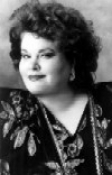Greetings, ladies and gentlemen. As promised, we start with a student composer at Westminster Choir College. To begin, I thought it would be most fitting if we lightly explore the world of our composition department.
According to the chair, Dr. Anthony J. Kosar, the composition department has been a part of the college since its establishment in 1926. Although it was originally called the Theory and Music History Department, composition grew increasingly popular. The department took about 75 years to evolve into the Music Composition, History, and Theory Department (MCHaT). Currently there are 24 students who are theory and composition majors: 6 are graduate students, while the other 18 are undergrads. About 2-4 masters and 2-6 undergraduates enter the program each year. Among other duties, the Westminster composition major must perform at least one piece during one of three composition concerts held each year, and give a recital in his/her last year at WCC.
On March 9th, I was able to sing for one such special recital in the spacious halls of Bristol Chapel: the senior composition recital of Thomas Rosin LaVoy.

Tom LaVoy and a section of the Sisu Choir
Thomas, known to us as Tom, is one of the most talented student composers at WCC. He has already had several choral works published, performed by the Williamson Voices and Westminster Choir. Even so, he is modest and truly sincere towards music. He’s the kind of fellow that, as you pass by and smile, always has a smile to give back.
The recital featured performers Jared Slaymaker and Hannah King on the piano, the Sisu Choir (with me! I was in the soprano section!!), Renata Kapilevich as the exquisite soprano soloist, a small hired orchestra, and Tom himself on the piano, the conducting podium, and the guitar with a splash of singing. Since my emphasis is on choral music, I will mainly focus on the choral portion of his recital.
Tom opened his program with three piano pieces, Etude No. 1: Twelve by Twelve, Portrait of a Homeless Man, and 19. Until now, I had only heard Tom’s choral works, so the piano pieces practically sent my jaw to the floor. My personal favorite was the Etude; it was rhythmically driving and fascinating to watch as the pianist’s (Jared Slaymaker) hands danced on the keys. Although there is no recording for the Etude at the moment, here is a recording of 19, an equally compelling piece performed by Tom himself (recorded in 2010*).
After the pianists, it was time for the Sisu Choir to bring the house down (yea baby!). Now, what does ‘Sisu’ mean?” In Finnish, “Sisu” roughly translates to “a long-term sense of courage and determination, an ability to perform and complete a difficult task against impossible odds” – Thomas LaVoy. Although we had originally (for fun) called ourselves the “LaVoices,” (see what we did there??) Tom’s decision with “Sisu” was more fitting in the end. It certainly made us all stand a little taller when we heard what it meant.
We began with one of my personal favorites, As I Walk the Silent Earth. The melody is as simple as a folk tune, but the text (written by Tom himself), is reflective and full of child-like wonderment.
On the other hand, the Alleluia has only one word to the text, “Alleluia” (recorded 2012*). This piece is also simple, but the melody and the intertwining harmonies make the sounds blossom with warmth.
Our final pieces were two movements from A Child’s Requiem. The requiem was commissioned by The Marquette Symphony Orchestra to mark the 100th anniversary of the Italian Hall Disaster. Before we dove into the piece, Tom took time to tell us about how 73 people, mostly children, died in a crowd crush that resulted from a panicked reaction to a non-existent fire.
The text was written by his mother, Esther Margaret Ayers, and it portrays a mother who had lost her child to the disaster. We had a small orchestra accompaniment with Renata singing the solo as this mother. It is a heart-wrenching piece that, especially with the Lux Aeterna in the end, is about being burdened with so much loss but also finding the courage to move on and find peace. I have always believed that a great choral piece is a journey, and Tom’s pieces are exactly that.
The recital ended with Tom singing two songs with the guitar. The first was Inclined to Behave and it was about change and acceptance of himself. The second was his arrangement of a jolly Irish folk-tune he fell in love in, Arthur McBride. All I can say is, when he played he got soul!
In one word, Tom’s music is honest. It is the honest emotions from the experiences in his life which he weaves into every note and phrase in his music.
So, let me take this moment to reiterate. Besides his perfect wave of golden locks (Yes, he is our version Eric Whitacre) Tom sang beautifully. But he also conducted masterfully, played the piano brilliantly, strummed the guitar with ease, and blessed the world with the music he created and bestowed into our ears that evening…
Please excuse me while I shut myself up in a practice room for the next decade.
… Okay I won’t do that, but if all goes well, I will be a music teacher somewhere in the world and I’ll just nonchalantly pass Tom’s music out to everybody and say, “hmmm? Oh the autographs on your music? Indeed, they were personally signed by Thomas LaVoy himself. I sang for him in his senior recital at WCC, no big deal. I mean, it makes me extremely special of coarse but hey, what’s new?”
And it is in my moment of vanity, ladies and gentlemen, that I bid you all a good day!
Other works by Thomas LaVoy:
Death’s Protest
White Stones
* pieces not recorded during the recital itself.











